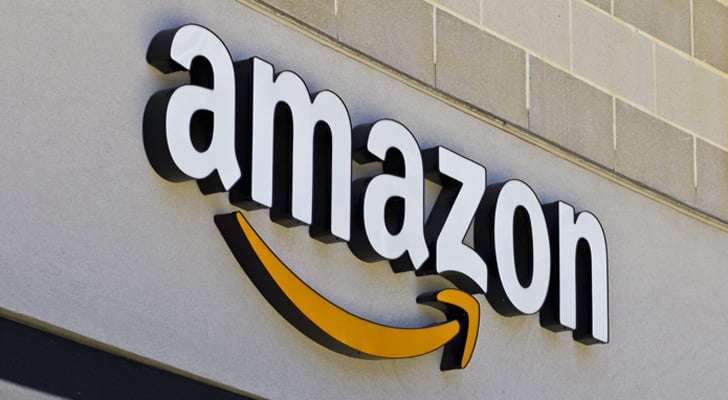Shares of Amazon.com, Inc. (NASDAQ:AMZN) have been weak over the past several days. Many investors and media outlets are attributing the drop in Amazon stock to a report that President Donald Trump is targeting the e-commerce behemoth on taxes and antitrust violations. But I don’t think that has much to do with why AMZN stock is falling.
Firstly, there really isn’t much Trump can do to AMZN. The company is notoriously consumer-friendly, and everything the company does is to the benefit of the consumer. Antitrust law won’t kick in until that isn’t the case.
Secondly, Amazon stock started falling well before the recent Trump versus AMZN rumors popped up. The Axios report kick-started all these rumors, and that report was published on March 28. Amazon stock started falling in mid-March.
Right around when data leak concerns hit Facebook Inc (NASDAQ:FB). And when an Uber self-driving car killed a pedestrian. And when investors started calling into question the valuation of big-growth tech stocks against bad headlines.
From this perspective, I think the Trump versus AMZN rumors are much ado about nothing for Amazon stock. What does matter is the valuation on AMZN. At current levels, that valuation looks stretched.
Here’s a deeper look.
Why Trump Doesn’t Matter
The Trump versus AMZN story makes for a good headline. But that is about it. When all is said and done, there really isn’t much Trump can do about Amazon’s retail dominance.
Firstly, Trump and others are complaining about the fact that internet retailers don’t charge a sales tax in states where they don’t have a physical operation (a store front or a fulfillment center). But Amazon has a massive growing network of physical locations, from offline retail stores to fulfillment centers. All together, Amazon collects sales tax in all 45 states that have a sales tax.
Thus, even if legislation is passed forcing Amazon to collect sales tax in the 5 remaining states (Montana, Delaware, Alaska, New Hampshire, and Oregon), that will hardly dent the company’s operations.
Secondly, antitrust law has become exceptionally consumer friendly over the past several decades. In short, antitrust law only kicks in once the consumer is being hurt by monopolistic practices.
This couldn’t be further from the truth in Amazon’s case. Amazon has created an e-retail behemoth that caters exclusively to consumers, at the expense of its own margins. Consumers benefit from everyday low prices and enhanced convenience, with things like same-day delivery.
All together, Trump isn’t a legitimate risk to Amazon stock.
Why Valuation Is a Concern
Valuation, however, is a legitimate risk to Amazon stock. By my numbers, it’s pretty tough to wrap your head around the current $1,400 price tag on AMZN stock.
There are essentially three parts to Amazon’s business.
First, there is the North American retail segment. This segment posted revenues of $106 billion last year on operating margins of nearly 3% and climbing. Revenue growth has been consistently in the 20-30% range, but offline retail expansion (namely, the acquisition of Whole Foods) super-charged North America retail revenue growth to above 40% last quarter.
Amazon will continue to make aggressive offline expansions over the next several years. Those expansions, alongside a 20% grower in the digital business, should lead to roughly 25% revenue growth per year over the next five years. Operating margins should continue to improve with scale, and it isn’t unlikely that they are in the 5-10% range in five years.
All together, that would imply North America retail revenues of $324 billion and operating profits of $24 billion in five years.
Second, there is the International retail segment ($54 billion in revenues on 20%-plus growth). Again, this segment is a big grower that should remain a big grower due to growing e-commerce sales and offline expansions.
Thus, this segment should also grow revenues by roughly 25% per year over the next five years. Margins should likewise improve with scale, but not to North America levels. A 5% operating margin seems reasonable in five years.
All together, that would imply International retail revenues of $166 billion and operating profits of $8 billion in 5 years.
Third, there is the Amazon Web Services segment ($17 billion in revenues, 40%-plus growth, and 25% operating margins). AWS is the king of the public cloud market, but there are signs that Amazon’s dominance in cloud is lessening. Over the next several years, cloud market growth will remain big, but AWS will naturally cede market share.
Also, margins will have trouble expanding because this industry will become increasingly commoditized over the next several years.
All together, AWS should be able to grow at a 20% clip over the next 5 years, while operating margins should expand slightly to 27.5%. That combination implies revenues of over $43 billion and operating profits of $12 billion in 5 years.
Bottom Line on Amazon Stock
If you put all that together, a reasonable assumption is for AMZN to hit $533 billion in revenues in 5 years and $44.5 billion in operating profits. Assuming a 21% tax rate and 500 million diluted shares, that equates to roughly $70 in earnings per share in 5 years.
Amazon stock should be able to fetch a healthy 25 to 30 multiple on those $70 earnings. But even at those big multiples, that still only implies an AMZN stock price of between $1,750 and $2,100 in 5 years.
Discount those back by 10% per year, and you arrive at a present value of between $1,100 and $1,300.
Thus, at $1,600 in mid-March, Amazon stock was just too expensive. This valuation normalization period could continue. But it won’t last long. As soon as Amazon stock approaches fair value, it will bounce sharply because investor demand for this name remains robust.
Broad takeaway: near-term could be choppy because of valuation. Long-term, stock will head materially higher.
As of this writing, Luke Lango was long FB.

